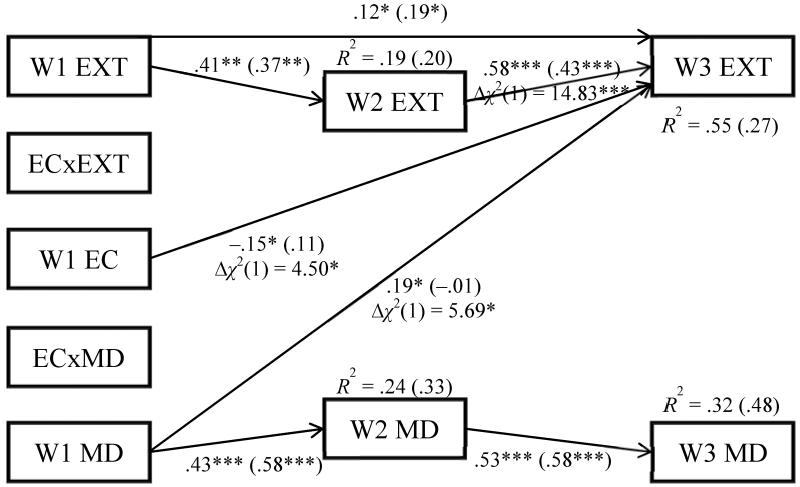Figure 4.
Multiple-group SEM results indicate maternal depressive symptoms (MD) and child effortful control (EC) at age 3 (W1) predict high levels of externalizing behavior (EXT) at age 10 (W3) only among boys (Standardized estimates before parentheses, n = 118). Boys’ externalizing behavior is more stable from ages 5 (W2) to 10 than girls’ externalizing behavior (Estimates in parentheses, n = 106). Covariances, residuals, and nonsignificant effects are not shown. Chi-square difference values (Δχ2) indicate paths that differ by gender. χ2(21) = 16.23, p = .757, CFI = 1.0, RMSEA = .00 [.00, .06].
*p < .05. **p < .01. ***p < .001.

